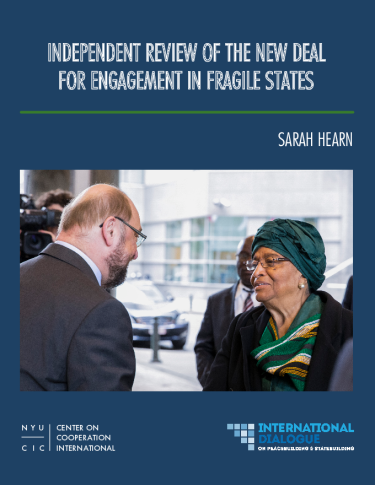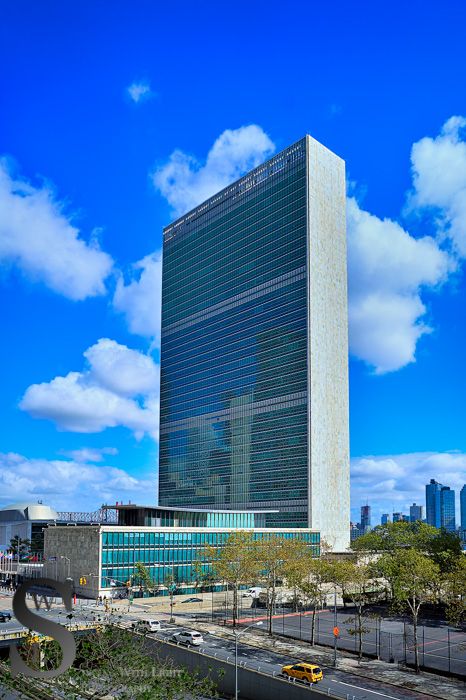The New Deal for Engagement in Fragile States rests upon the mutual commitment of national and international partners to country-owned and country-led exits from fragility.
Externally-imposed solutions do not work. In 2011, at the Busan Fourth High Level Forum on Aid Effectiveness, the New Deal was launched with a powerful message: 1.5 billion of the world’s poorest people lived in fragile situations. Without partnerships for first building peace, resilience and institutions, the eradication of poverty was not possible. The Millennium Development Goals failed to address this.
The UN Sustainable Development Goals (SDGs) now recognize in SDG 16 that achieving peaceful and inclusive societies, access to justice and effective, accountable and inclusive institutions is fundamental for leaving no-one behind in any country. The SDGs agenda will, however, fail the world’s poorest people by 2030 without concerted action to apply the partnership principles of the New Deal. Ending conflict, building institutions and resilience, and delivering basic services and growth could reduce the number of people in absolute poverty from 1.5 billion now to 350 million by 2030. It could also help societies manage new risks. Retreat from the New Deal principles should be inconceivable.
As an alliance, the g7+ group of countries has the opportunity to make a unique contribution to the sustainable development agenda as a leading coalition for leaving no-one behind. National leadership and ownership of policies and plans must be respected. Implementation of the New Deal so far has not been easy, reflecting a need for political leaders to recommit to the principles of the New Deal. This is especially true for political processes that bind all relevant actors into a shared vision for “what” needs to be achieved and “how.”
International partners could do much more to deliver their side of the New Deal bargain. The g7+ needs coherent, predictable and timely assistance to develop national capacities and fill finance gaps. Yet, the fragmentation of aid and development partners across the SDGs, and growing pressures on humanitarian aid, could make matters worse in the SDGs era. All international governmental and private sector partners need to rally to the institutional development priorities of the g7+.
This is why partners should commit to a New Deal for the New Deal. There must be a Ministerial Compact that recognizes the urgency of re-engaging on the New Deal principles for achieving the SDGs. The Compact should provide the basis for a new SDGs generation of strategy, planning, programming and monitoring, as well as global and regional partnerships and advocacy.
The International Dialogue on Peacebuilding and Statebuilding could re-position itself as a multi-stakeholder and country-focused partnership for leaving no-one behind under the UN pledge of SDG 17 to “Partnerships for the SDGs.”
- Read the full report Independent Review of the New Deal for Engagement in Fragile States
- Read the Executive Summary Independent Review of the New Deal for Engagement in Fragile States (English version)
- Read the Executive Summary Independent Review of the New Deal for Engagement in Fragile States (French version)



